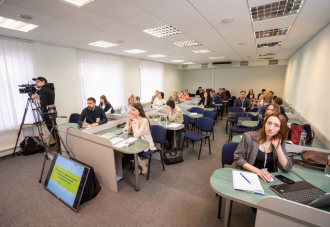In the context of a large-scale war, Ukraine receives enormous support not only from Ukrainian public associations and charitable organizations, but also from foreign ones.
Therefore, foreign NGOs and charitable foundations often face the below question: How do we organize work in Ukraine?
Opening a branch vs. establishing a new organization
First of all, they should decide what they want to do: open a representative office in Ukraine or establish a new charitable organization founded by a foreign NGO or foundation? The most important thing when choosing between the two options is the issue of residency. It should be remembered that a separate subdivision is not a legal entity and will have the status of a non-resident of Ukraine, while a new charitable organization is a resident of Ukraine, even if its founder was a foreign organization.
Under Martial law in Ukraine, there is a separate Government procedure for the provision of services in the field of registration, which is regularly refined and improved. We mean the Resolution of the Cabinet of Ministers of Ukraine No. 209 “Certain Issues of State Registration and Functioning of Unified and State Registers Kept by the Ministry of Justice under Martial Law”.
In April 2022, the Resolution No. 209 was amended to provide for the possibility of establishing representative offices of foreign non-governmental organizations. Therefore, the service of registering a separate subdivision of a foreign organization is currently available.
However, given the current state of affairs in the field of state registration, establishing a new charitable organization is a simpler and better option.
Firstly, separate subdivisions are registered not in the Unified State Register (USR), but in the old register of public associations – this further complicates the normal civil law activities of such a separate subdivision. For example, banks will not be able to automatically retrieve information about such an entity from the register. In its turn, a new charitable organization is registered in the USR, so all the information about it is automatically received by the tax and statistical bodies.
Secondly, a set of documents to establish a new charitable organization is easier to prepare than in case when you register a separate subdivision.
Thirdly, a new charitable organization is a full-fledged legal entity, and this is again an understandable entity for everyone around (tax authorities, contractors, banks, etc.).
Is it possible to obtain a ‘temporary license’, a permit to operate in Ukraine while the registration is still pending?
The legislation does not provide for the possibility of temporary legalization for operation in Ukraine. And the best option here is to sign an agreement on cooperation with a Ukrainian organization.
Should foreign NGOs consider a ‘temporary license’ to operate mostly at local or regional level?
As for the regional aspect in the activities of organizations in Ukraine, there are no restrictions. Regardless of the region of registration, an organization can operate throughout Ukraine, which should be mentioned in the constituent document (articles of association).
Can foreign organizations count on the registration assistance from the Ukrainian consulate in their country or on the assistance of the consulates of their countries in Ukraine?
At a minimum, the documents issued in accordance with the legislation of a foreign state, which are submitted for the state registration, should be legalized (consular legalization or apostille). Foreign organization should contact the consulate of its country in Ukraine to solve this issue.
In addition, Ukrainian law stipulates that documents submitted for the state registration must be presented in the official language and, in addition, at the request of the applicant, in another language (other than the application for state registration).
The document in a foreign language must be translated into Ukrainian with a certificate of correctness of the translation from one language to another or the signature of the translator according to relevant legal requirements.
For example: A document confirming the registration of your organization in Denmark (extract, excerpt or other document from the trade, banking, court register, etc.) can be legalized for use in Ukraine by the Danish Embassy in Ukraine, and its translation into Ukrainian, the correctness of which can be certified by the consulate of Ukraine in Denmark, is required.
Also, you can request various formats of assistance from the consulate, such as assistance in obtaining advice from the authorized representatives of the Ministry of Justice of Ukraine regarding registration procedures.
How long does it usually take from filing documents to registration?
It all depends on the speed of preparation of the set of documents and its compliance with the requirements of the law “On State Registration of Legal Entities, Individual Entrepreneurs and Public Organizations”. After all, now there is a special registration procedure in place and documents are being considered without delay. In the pre-war time, the procedure would take up to 20 days to do so for separate subdivisions of foreign NGOs and up to 24 hours for a charitable foundation.
Where do I go to get registration services?
For more information on registration services, please contact the administrative service provider. For the up-to-date list and contact telephone numbers of the state registration bodies, see the website of the Ministry of Justice at the link: https://bit.ly/3MAi8wd.
This information product is made possible by the generous support of the American people through the United States Agency for International Development (USAID) within the Ukraine Civil Society Sectoral Support Activity implemented by ISAR Ednannia in partnership with the Ukrainian Center of Independent Political Research (UCIPR) and Centre for Democracy and Rule of Law (CEDEM).



